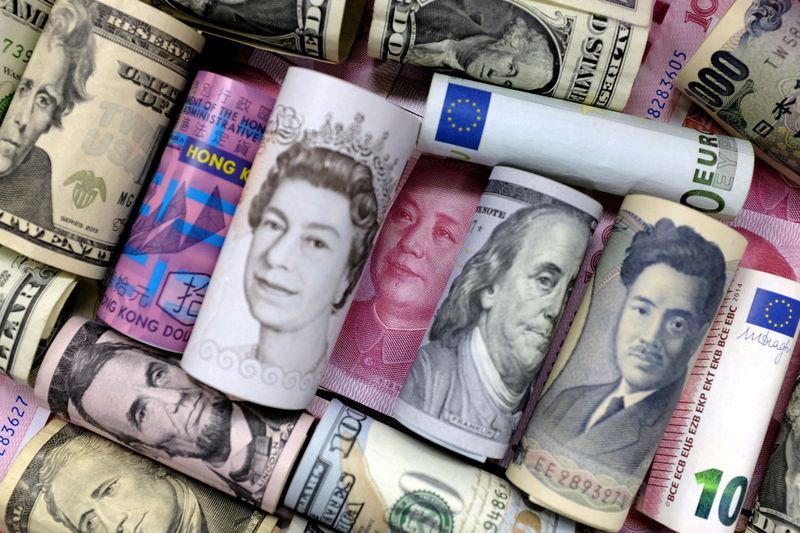By Chuck Mikolajczak
NEW YORK (Reuters) - The dollar edged higher against a basket of major currencies on Friday, putting it on track for a third straight day of gains, as crude prices reversed earlier weakness and added to pressure for the Federal Reserve to be aggressive in combating inflation.
After initially declining, oil prices rebounded following a missile attack hit Saudi Arabia's state-run oil company Aramco (SE:2222)'s storage facility.
The war in Ukraine and resulting rise in commodity prices has added upward pressure to already high inflation.
The dollar index rose 0.071%, with the euro down 0.11% to $1.0984.
The greenback is poised for a solid gain this week, which would mark its sixth weekly gain in the past seven. The dollar has benefited from its status as a safe haven and the conflict in Ukraine has driven expectations the Fed will hike interest rates.
"The one thing everyone can agree upon is inflation is going to be longer-lasting and a lot of that will be sticky and that will complicate what central banks do in the end," said Edward Moya, senior market analyst, at Oanda in New York.
"You will probably see the dollar lead the charge with rate hikes, Europe will lag and that interest rate differential should provide some support for the dollar."
Joining other analysts that have raised expectations for a more aggressive Fed, Bank of America (NYSE:BAC) on Friday said it expects two hikes of 50 bps each at its June and July meetings with "risks" of those being pulled forward into May and June respectively.
Citi also revised its Fed policy path higher for rate hikes, expecting 50 basis point hikes at the May, June, July and September meetings this year.
Economic data pointed to rising prices and interest rates starting to crimp some economic activity.
Contracts to buy U.S. previously owned homes dropped to the lowest level in nearly two years in February while consumer sentiment was dented in part by climbing gasoline prices, which boosted inflation expectations to the highest level since 1981.
The euro gave up early gains and weakened, and was on pace for its sixth weekly decline in seven, although concerns about an economic slowdown were likely to keep it in a tight range.
German business morale deteriorated in March due to worsening supply chain issues resulting from high petrol prices and driver shortages, a survey showed on Friday.
The Japanese yen strengthened 0.21% versus the greenback to 122.07 per dollar after hitting a fresh low of 122.43, the weakest in more than six years, while Britain's pound was last trading at $1.3187, up 0.03% on the day.
The yen has been under pressure, with the Bank of Japan expected to keep its soft monetary policy in place, in contrast to most other central banks around the globe.
In cryptocurrencies, Bitcoin last rose 1.24% to $44,448.50.
